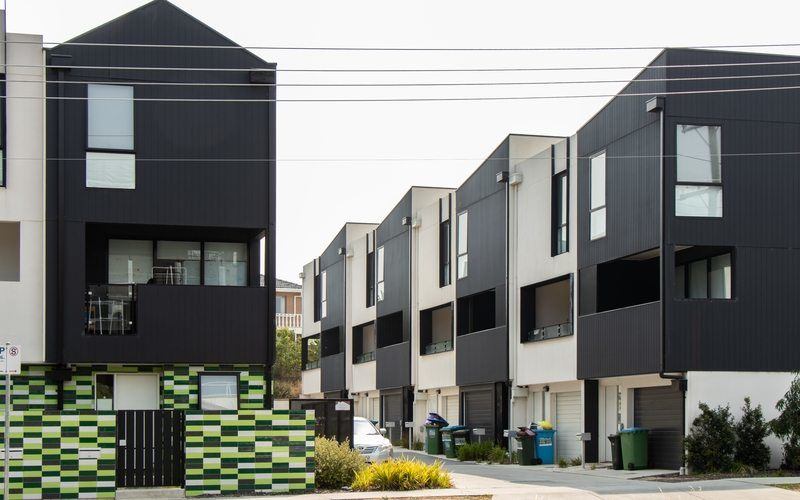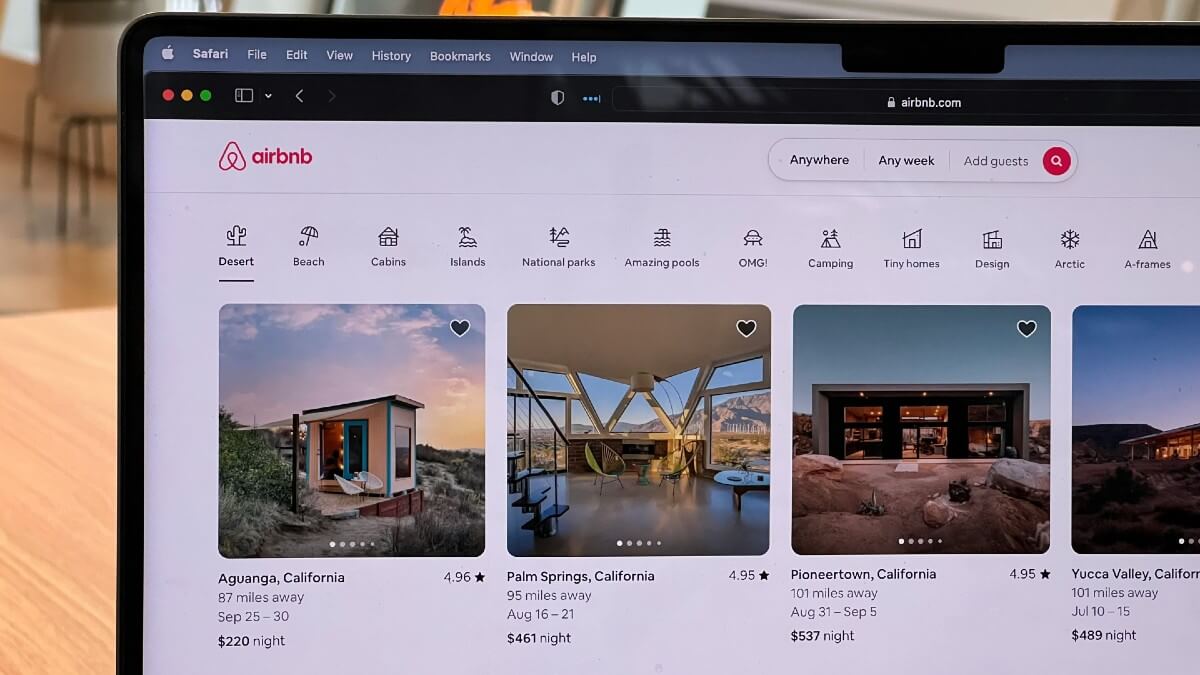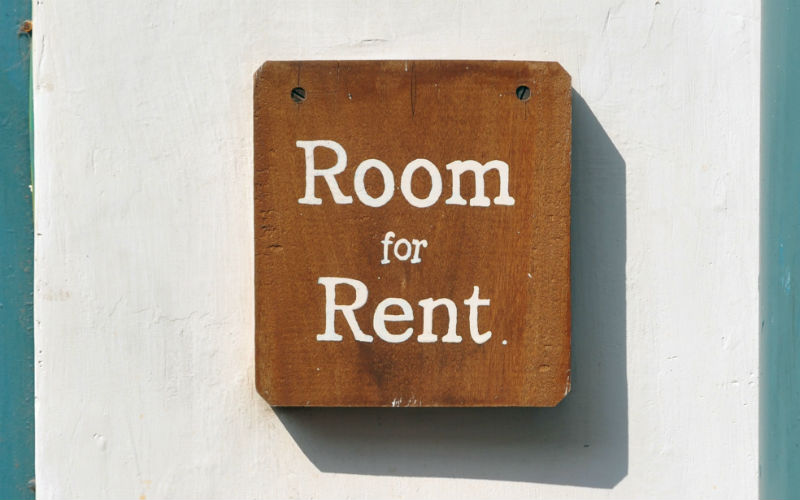Financial circumstances can change over time and sometimes that requires offloading investments. But when you’re a home owner providing a place of residence for another, you can’t simply stake a ‘for sale’ sign in the ground - the tenants' rights have to be respected.
Selling a property with tenants
If you’re wondering whether or not you can sell your investment property as you have tenants, the short answer is yes, it just requires some groundwork. Tenants residing in your property do not influence who owns the deed to your asset, yet they have the ability to maintain their right to live in your property until the lease agreement expires or even longer. This means if you do decide to sell, you can’t just up and kick them out, they have rights too.
Providing sufficient notice
If you intend to sell your investment property, you are legally obligated to inform your tenant of your intent to sell the property before you actually commence the property sale process. Generally across all states and territories, tenants are provided with a letter of intent to sell before the sale process begins.
Understanding lease agreements
If a tenant’s lease is a fixed-term (the more common type of lease) then you can’t just kick them out if you want to sell the home, nor can the new owner remove them until the lease expires. Being ‘fixed’, this means if you try to sell your investment property with six months to go on a 12-month lease, then the tenants are allowed to stay there for those remaining six months unless:
-
They directly violate the terms of the lease; or
-
Both parties come to a mutual agreement to end the lease.
If the tenant is on a periodic lease, then you can choose to evict them, but you must give them proper notice - anywhere from 30 to 120 days depending on specific state or territory guidelines. If you wish to not renew a fixed-lease, you still need to provide tenants a minimum 30 days notice to ensure they are able to find a new place of residence.
Property inspections
When showing your home to prospective buyers, scheduled inspections are required for them to get a feel of the home, it’s true value, the area and overall liveability. You can’t have these unbeknown to the tenants - you often need to provide at least 24-48 hours worth of notice for each inspection. Some jurisdictions require up to two weeks notice before the first inspection and before the property is advertised for sale.
Tenants also have the right to be present at the home during inspections and in some states can even refuse an open home request pending the circumstances.
Director of Chamberlain Property Advocates Wendy Chamberlain said it’s important to ensure effective communication between yourself as the prospective seller and tenants.
“From the first communication advising that the home is going to be sold, right throughout the entire process, keep the tenant updated,” Ms Chamberlain told Savings.com.au.
“Explain to them clearly the processes involved, the timelines, the access to the home that will be required, the open inspection times or private inspection times and always provide them with sufficient notice.”
The right to privacy
As the property owner, you’re allowed to take as many photos of the exterior to your heart's content, but when it comes to the interior of the home it’s a different ball game. If you want to take internal photos of the property, such as the bedrooms, then you need to receive permission from the tenant(s). The same applies to on-site auctions and signage on the property.
Remember that tenants still live in the house, and as such, they may have personal possessions and information they don’t want put up on a real estate website.
Pros and cons of selling a tenanted property
Arguably the main appeal of selling a property with tenants still living in it is you can continue to receive rental income right up until the house is sold, potentially paving the way for thousands of extra dollars in your back pocket depending on how long the sale takes. The table below outlines some significant pros and cons of selling a tenanted property.
|
Pros of selling a tenanted property |
Cons of selling a tenanted property |
|---|---|
|
You can still receive rental income right up until you no longer own the property. |
You need to give tenants plenty of notice for both the intent to sell and each inspection |
|
Other investors might be more willing to buy a property with existing tenants to receive rental income straight away |
The tenants might not present the property in its best state, potentially harming the sale price |
|
You can potentially sell to the tenants themselves, which could cut down on time and save money on advertising and other costs. |
Tenants might be a roadblock for buyers who want a fresh start with an empty property |
|
A property with tenants, as opposed to an empty one, might provide more proof to prospective buyers that it is a desirable property |
It could cause friction between the landlord and the tenant |
State-by-state tenant rights
The specific rules of selling a tenanted property vary from state to state - it’s generally advised you check your state’s tenancy laws for a more detailed breakdown of what you and your tenant(s) are entitled to.
[Read: Tenants' rights for landlords]
Tenants’ rights when selling: NSW
-
Written notice: You must provide at least 30 days notice if you wish to terminate the lease at the end of the agreement period, or 14 days of notice if tenants breach the tenancy agreement.
-
Eviction: No eviction can occur for a fixed lease unless the lease is violated or both parties reach a mutual agreement
-
Notice required for inspections: At least two weeks written notice for the first inspection, 48 hours for following inspections (no more than two per week).
Tenants’ rights when selling: VIC
-
Written notice: You must provide 60 days written notice if you wish to not renew the tenants' fixed lease.
-
Eviction: No eviction can occur for a fixed lease unless the lease is violated or both parties reach a mutual agreement.
-
Notice required for inspections: 24 hours of notice is required for inspections, with no cap on the number of inspections that can take place per week.
Tenants’ rights when selling: QLD
-
Written notice: You must provide written notice to tenants of intention to sell as well as four weeks’ notice if termination of the lease is mutual.
-
Eviction: No eviction can occur for a fixed lease unless the lease is violated or both parties reach a mutual agreement.
-
Notice required for inspections: Must provide at least 24 hours notice for both the first and subsequent inspections.
Tenants’ rights when selling: SA
-
Written notice: You must provide written notice of intention to sell to tenants and 60 days of notice to evict on periodic lease if a contract of sale has been signed.
-
Eviction: No eviction can occur for a fixed lease unless the lease is violated or both parties reach a mutual agreement.
-
Notice required for inspections: Must provide at least 14 days of notice before advertising the property for sale, and give “reasonable notice” before each inspection.
Tenants’ rights when selling: WA
-
Written notice: You must provide written notice of intention to sell to tenants. You can also terminate a periodic tenancy by giving at least 21 days’ written notice to the lessor, the lessor can end the tenancy by giving you at least 60 days’ written notice.
-
Eviction: No eviction can occur for a fixed lease unless the lease is violated or both parties reach a mutual agreement.
-
Notice required for inspections: “Reasonable notice required” - not defined in the state’s tenancy agreement.
Tenants’ rights when selling: TAS
-
Written notice: You must provide written notice of intention to sell to tenants. 42 days notice required for ending a periodic lease.
-
Eviction: No eviction can occur for a fixed lease unless the lease is violated or both parties reach a mutual agreement.
-
Notice required for inspections: 48 hours of written notice is required for inspections.
Tenants’ rights when selling: ACT
-
Written notice: You must provide written notice to tenants of your intentions, eight weeks required for mutual termination.
-
Eviction: No eviction can occur for a fixed lease unless the lease is violated or both parties reach a mutual agreement.
-
Notice required for inspections: You must provide 24 hours of notice before inspections, tenants can refuse access if they were not previously informed of the sale.
Tenants’ rights when selling: NT
-
Written notice: You must provide written notice to tenants of your intentions. 14 days notice is required for ending a fixed lease at its end, 42 days for a periodic lease.
-
Eviction: No eviction can occur for a fixed lease unless the lease is violated or both parties reach a mutual agreement.
-
Notice required for inspections: At least 24 hours.
Tips for selling a tenanted property
According to Ms Chamberlain, one of the key ways you can make the process of selling a tenanted property smoother is by being kind to your tenants and respecting their space while understanding that it is their home too.
“Be mindful of the fact that you are entering their space and also their availability and working hours,” Ms Chamberlain said.
For example, if a tenant works night shifts, scheduling inspections for later in the afternoon when they’re less likely to be asleep could be ideal.
She also recommends respecting the tenants' space, and not expecting them to move furniture around or declutter the home they live in.
“The property will be presented as is, unless the tenant decides to work with you regarding taking on your suggestions as to how the home could be better presented for sale,” she said.
“A sale can be very stressful for a tenant. You are introducing uncertainty, even for those that are in a fixed lease until a set date. No one knows whether the home will be purchased by another investor, meaning they can likely stay on, or if the home will be purchased by a home buyer.
“If it is the latter, the tenant knows that they will be homeless and need to start the hunt again to find a suitable place to live. Be mindful of this and tread lightly.”
As a landlord you can also offer tenants incentives to encourage their cooperation and let them know you appreciate their understanding, such as:
-
Reduced rent, or perhaps even a week or two of no rent during peak inspection times.
-
Gifts, such as movie tickets, as a thank you.
-
A reference for future rental applications.
Overall, ensuring a clear line of communication between you and the tenant is vital to maximise your chances of a good sale.
Should you use a property manager?
The process of selling a home can be stressful for not just you but the tenants as well. If you decide to sell a home with tenants, employing the services of a property manager can help with the landlord-tenant aspect of the sale.
Principal of The Rental Specialists Jo Natoli said landlords should always consider using a property manager.
“Amongst other things, a good property manager will facilitate a good relationship between owner and tenant,” Ms Natoli told Savings.com.au.
“A good property manager will help the owner maintain the value of their capital investment as well as assist in maintaining the value of their rental return. A good property manager will also assist in removing the emotion out of what can sometimes be emotionally charged situations.”
For the actual sale of the property, you can use a selling agent. Ms Chamberlain recommends moving management of the property over to the agent appointed to sell the property once you’ve decided to do so.
“It just makes coordination and access simpler as a good property manager will be able to liaise between the tenant, landlord, the vendor advocate and selling agent,” she said.
What about when you’re selling to the tenant(s)?
It’s entirely possible that when selling a property, the tenants themselves may be interested in purchasing the property, or they may even just approach you outright if the property isn’t even for sale. This is more likely to happen if a tenant has lived in the property for a while and has come to view it as their home anyway. For example, a young family or a couple planning a family may have grown attached to the property, and decide they want to have their name on the deed.
Principal at Ray White Quakers Hill Josh Tesolin said tenants wanting to buy the property from their landlord is incredibly common.
“Often a tenant already feels as though the home is theirs, and would prefer to own the property themselves,” Mr Tesolin told Savings.com.au.
“If a person has been saving for a home while renting and likes the location and feel of the home, they will typically request to purchase the property they are already living in.
“For the right price, the landlord or vendor is usually open to discussing the possibility of selling.”
Mr Tesolin said selling to a tenant is advisable under certain circumstances, and all the industry rules, regulations and laws still apply unless both parties agree to a sale outside the general industry rules.
“The pros of selling to a tenant are that the process is quicker, easier and no marketing budget is required,” he said.
“The cons of selling to a tenant are that the vendor isn’t able to explore the market or expose their property to multiple buyers who may pay a more competitive price for the home on offer.
“Selling to a tenant can potentially result in a lower sale price being achieved.”
On the other hand, tenants who have lived in the property for a while might be willing to pay a premium for a property they’ve become attached to, especially if there are many other interested buyers.
“My advice is to request a property appraisal from a real estate agent – this will help determine the potential market value of your property,” Mr Tesolin said.
Savings.com.au’s two cents
Just like a traditional property sale, selling an investment property isn’t a short process - often taking a couple of months if not longer to find the right buyer and sign a contract of sale. While having a tenant in the property can be beneficial for continuing to receive rental income, it can increase the chances of complications arising the longer it takes to sell the house. It’s important to ensure both you and the tenants find a good middle ground, with open lines of communication and an understanding of one another’s rights and responsibilities when the property is for sale.
Remember that while you own the home, the tenants live in it, and having people streaming in and out while not even knowing if their lease will be extended can be quite concerning for them.
If you aren’t sure of how to go about navigating the property sale process, consider consulting the services of a property manager for the tenant-management side of things (if you don’t have one already) and a selling agent to help with the property sale.
Article first published July 31, 2020. Updated March 3, 2022.
Image by Mitchell Luo via Unsplash

Ready, Set, Buy!
Learn everything you need to know about buying property – from choosing the right property and home loan, to the purchasing process, tips to save money and more!
With bonus Q&A sheet and Crossword!



 William Jolly
William Jolly
 Emma Duffy
Emma Duffy













